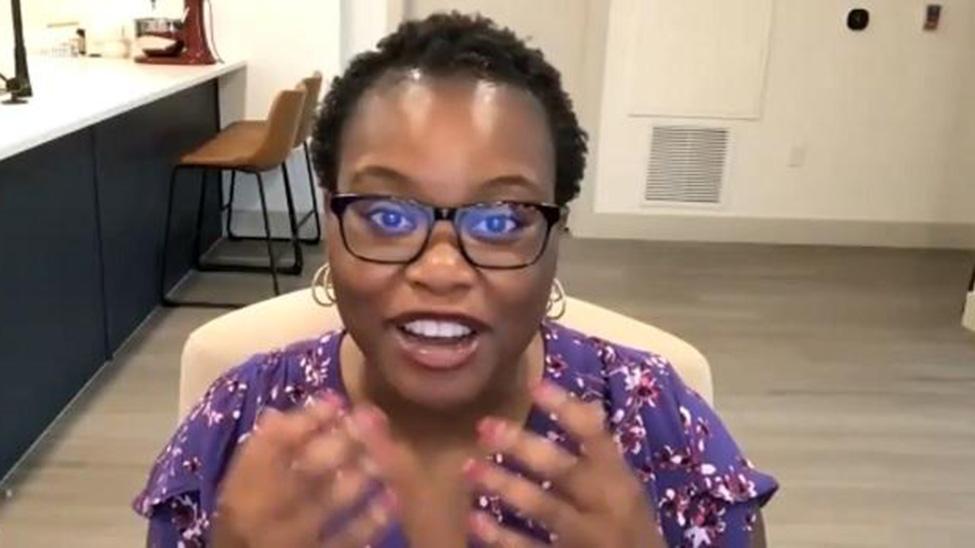
UC Davis Professor of Law Irene Oritseweyinmi Joe Delivers 2022 Philip B. Blank Memorial Lecture on Attorney Ethics

On Monday, April 4, 2022, Irene Oritseweyinmi Joe virtually delivered the 2022 Philip B. Blank Memorial Lecture on Attorney Ethics. Professor Joe is a member of the UC Davis School of Law faculty, having joined it in 2016. The topic of her lecture was “Learning from Mistakes: Ethical Considerations for Public Defenders.”
Dean of the Elisabeth Haub School of Law at Pace University, Horace E. Anderson, introduced the 2022 Blank Memorial Lecture and provided background on the history of the lecture and Philip Blank. Professor David Dorfman introduced this year’s speaker, noting the timeliness and importance of the topic. Professor Dorfman indicated that Professor Joe comes to this particular lecture topic with “the highest credentials” and an “illustrious career” dedicated to ethical considerations for public defenders.
Professor Joe’s engaging lecture focused on not only ethical considerations for public defenders, but the importance of the role of public defenders and provided concrete and tangible considerations for the future. She said, “Who the public defender is, what the public defender does and how the public defender does its job within our system of legal ethics and professionalism are important questions that have been the primary motivation in my scholarship so far.”
Throughout the lecture, Professor Joe discussed the role of the public defender. She also discussed how the design of the criminal process affects the ability of institutional attorneys to manage overwhelming caseloads and comply with ethical requirements. She also made note that, “Public defenders can’t just exist to point out the mistakes of others and then be defensive when it comes to considering their own and unwilling to learn from their own.”
Professor Joe concluded her lecture by engaging the audience with something to think about as we move forward, “Conviction integrity units have become more common in prosecutor offices throughout the nation in response to calls for criminal justice reform and recognition of the failures that might occur in prosecuting those accused of criminal behavior. There has been no similar widespread creation of units dedicated to reviewing public defender actions in the indigent defense arena and it is important for us to consider what a walk down that path would look like as part of a general more expansive move forward in this moment of racial reckoning and consideration of the problems with the criminal process.”
Following the lecture, Professor Margot Pollans moderated a question and answer session with the audience where several in depth questions were asked and thoughts were shared. Professor Joe noted that it was an honor for her to present this lecture as part of Phillip Blank’s legacy, which “clearly conveyed commitment to the advancement and better understanding of the legal profession and the rules that guide it.”
The Philip B. Blank Memorial Lecture on Attorney Ethics was established by the family, friends and colleagues of the late Philip B. Blank, Associate Dean for External Affairs and Professor of Law at the Elisabeth Haub School of Law at Pace University. In honor of Dean Blank's commitment to legal ethics, the Blank Lecture has presented distinguished members of the legal community recognized for their leadership in the area of attorney ethics and practice. Dean Blank was a member of the Law School's faculty from 1979 until his death in 1989. He taught courses in Professional Responsibility, Wills, Estate Planning and Legal Methods. He is remembered as an outstanding teacher of the law and a caring mentor to his students. A model citizen of Westchester County, Dean Blank served as Chairman of the Zoning Board of Appeals for the Town of Mount Pleasant and held leadership positions in the Westchester County and White Plains Bar Associations. The last Blank lecture was given by Mimi Rocah, District Attorney for Westchester County.
Watch the 2022 Philip B. Blank Memorial Lecture on Attorney Ethics below.